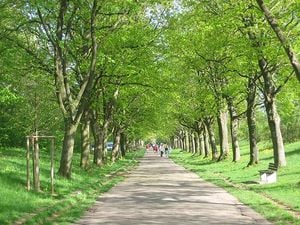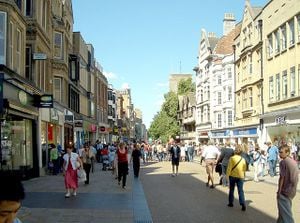
This page is an introduction to Citizens' assemblies for community agency networks (CANs), community groups and anyone else interested in the development of more participatory W and deliberative democracy W and governance.
 A Global Citizens’ Assembly is coming in late 2025—aiming at 10 million global citizens taking part in deliberations about the planet, Daily Alternative (Oct 16, 2024)
A Global Citizens’ Assembly is coming in late 2025—aiming at 10 million global citizens taking part in deliberations about the planet, Daily Alternative (Oct 16, 2024)  Launch of the Global Citizens’ Assembly for People and Planet, iswe.org (Oct 07, 2024)
Launch of the Global Citizens’ Assembly for People and Planet, iswe.org (Oct 07, 2024)
 Citizens' Assemblies should lean towards becoming a parallel polis - and much less a democratic figleaf for establishments, Daily Alternative (Oct 14, 2023)
Citizens' Assemblies should lean towards becoming a parallel polis - and much less a democratic figleaf for establishments, Daily Alternative (Oct 14, 2023)  From a French citizens' assembly, an eyewitness report on how non-experts are their real strength, The Daily Alternative (Jan 21, 2023)
From a French citizens' assembly, an eyewitness report on how non-experts are their real strength, The Daily Alternative (Jan 21, 2023)
What is a Citizens Assembly?[edit | edit source]
A citizens' assembly is a group of people selected by lottery from the general population to deliberate on important public questions so as to exert an influence. Other types of deliberative mini-publics include citizens' jury, citizens' panel, people's panel, people's jury, policy jury, consensus conference and citizens' convention.
A citizens' assembly uses elements of a jury to create public policy. Its members form a representative cross-section of the public, and are provided with time, resources and a broad range of viewpoints to learn deeply about an issue. Through skilled facilitation, the assembly members weigh trade-offs and work to find common ground on a shared set of recommendations. Citizens' assemblies can be more representative and deliberative than public engagement, polls, legislatures or ballot initiatives. They seek quality of participation over quantity. They also have added advantages in issues where politicians have a conflict of interest, such as initiatives that will not show benefits before the next election or decisions that impact the types of income politicians can receive. They also are particularly well-suited to complex issues with trade-offs and values-driven dilemmas.
With Athenian democracy as the most famous government to use sortition, theorists and politicians have used citizens' assemblies and other forms of deliberative democracy in a variety of modern contexts. As of 2023, the OECD has found their use increasing since 2010.
Climate assembly
The term 'Climate assembly' is used here to mean any citizens assembly considering, either exclusively or otherwise, a response to climate change or climate emergency.
See also: List of climate assemblies
Global assembly[edit | edit source]
- Coalition for a Global Citizens’ Assembly, Video: Global Assembly on youtube.com, added 16:48, 25 October 2024 (UTC)
Disadvantages and criticism of Citizens' assemblies[edit | edit source]
Whilst Assembly proponents can list a number of advantages W, a number of disadvantages are also identified in Wikipedia's article W.
A broad criticism is that whilst an assembly may involve a tiny minority of the public in a deliberative process, it doesn't necessarily allow them, or the wider public, also involvement in the design or evaluation of the process.
Another concern or criticism less often noticed or acknowledged is that Citizens' assemblies may not have any significant effect on the resources and empowerment of communities themselves, their groups and self-organised networks. In other words it is arguable that they may do little to challenge power imbalances. Citizens' assemblies have generally been conceptualized as quite resource intensive processes. For this reason it's perhaps understandable that much of the resources and learning about them has been from the point of view of local or national governments rather than local communities themselves and their ongoing learning, self development and the actualization of their agency. Generally perhaps they remain a 'done to' rather than a 'done with' thing.
For these reasons, and even though their advantages can be recognised, Citizens' assemblies are not yet regarded here as a Community Action Project.
How to's[edit | edit source]
- How To Run A Citizens' Assembly: Handbook, demsoc.org/public-square, date not found, added 14:56, 19 November 2021 (UTC)
- Climate Assemblies, Democracy in action. Includes guides to help start a climate assembly on a local level.
Other resources[edit | edit source]
- The Extinction Rebellion Guide to Citizens' Assemblies [1]
- Basic Standards for Organising Citizens’ Assemblies, May 22, 2019 Extinction Rebellion
News and comment[edit | edit source]

- Citizens Assemblies: fashionable focus groups or the great hopes of democracy? May 11, 2021...[1]
The Scottish Citizens Assembly has concluded - and one of its big proposals is a "House of Citizens", as a second chamber for Holyrood, Feb 8, 2021...[2]
- If democracy looks doomed, Extinction Rebellion may have an answer, John Harris, Aug 30, 2020...[3]
- Could the Citizens’ Assembly of Scotland change how politics is done for good? Mar 20, 2020...[4]
- When a neighbourhood assembly becomes a community by @kahui, Dec 16, 2019...[5]
- How do we discover what matters most to people to help them thrive? noelito. Sep 14, 2019...[6]
References
See also[edit | edit source]
- Peoples assemblies
- Climate action, Climate news
- Community involvement, Community involvement news
- Community involvement UK, Community involvement UK news
- Extinction Rebellion, XR and future democracy
- Camden
- Towards a more democratic and climate friendly way of meeting housing need across England
local information and news can be found, or shared, via our many location pages




